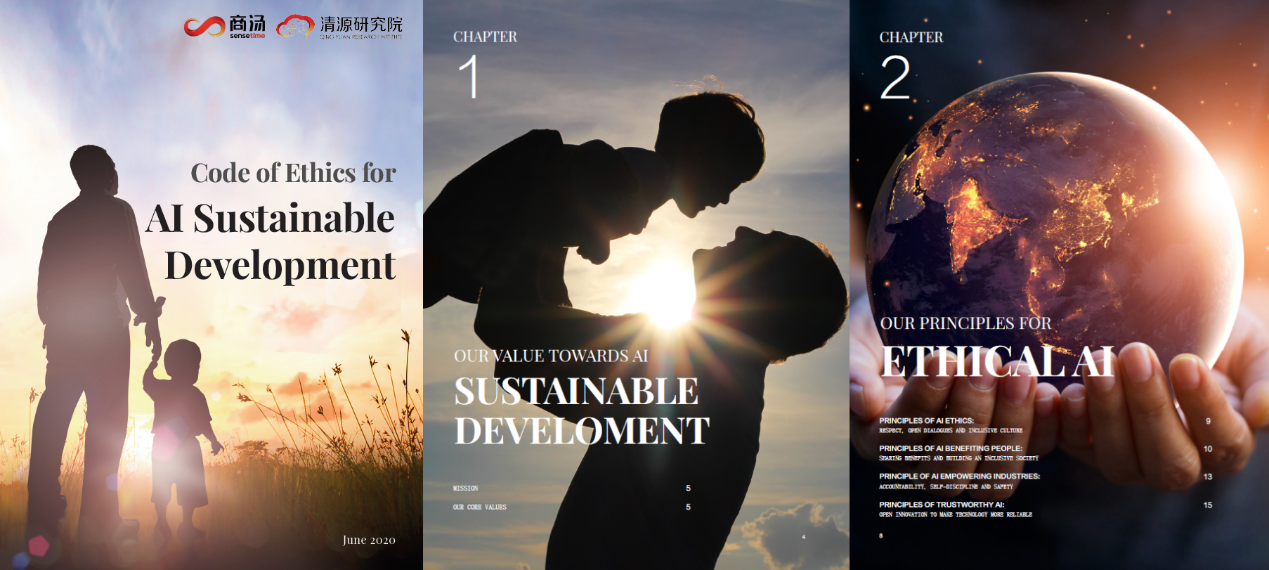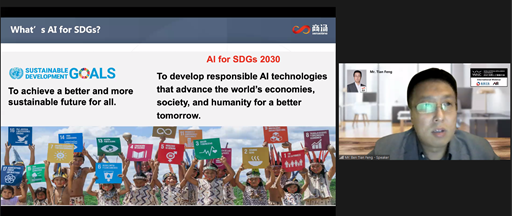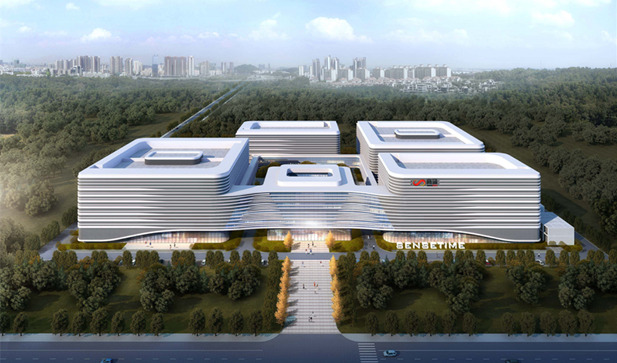- News and Stories
SenseTime Advances Efforts Towards Sustainable AI Development
The company’s whitepaper on the “Code of Ethics for AI Sustainable Development”
included in UN report

Resource Guide on Artificial Intelligence Strategies by the United Nations Department of Economic and Social Affairs
June 28, 2021 – Hong Kong - SenseTime, a world-leading artificial intelligence (AI) company, announced that its whitepaper on the “Code of Ethics for AI Sustainable Development” has been included in the “Resource Guide on Artificial Intelligence Strategies”, released this month by the United Nations Department of Economic and Social Affairs (UN DESA).
The UN guide lays out existing resources on artificial intelligence ethics, policies, and strategies on national, regional, and international levels, and incorporates key references that can provide a global overview of discussions surrounding AI strategy development.

Whitepaper on Code of Ethics for AI Sustainable Development jointly published by SenseTime and Qing Yuan Research Institute of Shanghai Jiao Tong University
12 principles towards ethical and sustainable AI development
With the rapid development of AI technology, there is a need to set guidelines and principles to ensure it remains human-centric, sustainable, and ethical. Advocating for sustainable growth for the industry, SenseTime and Qing Yuan Research Institute of Shanghai Jiao Tong University jointly published the “Code of Ethics for AI Sustainable Development” last year at the “AI Sustainable Development Forum for 2030”, with reference to the United Nations Sustainability Development Goals (SDGs).
The whitepaper introduced 12 principles for ethical AI development under the categories of AI ethics, AI benefiting people, AI empowering industries and trustworthy AI. Underpinned by SenseTime’s core values of Human Technology, Shared Benefits, Integrated Development, and Open Innovation, the whitepaper serves as a guide and focal point for AI governance, as well as a vehicle for reflection, discussion, and collaboration as the company pursues the development of new technologies.

Mr. Tian Feng, Dean of Intelligence Industry Research Institute at SenseTime said on the “Co-Shaping our Sustainable Future with AI” International Webinar of the 2021 World Artificial Intelligence Conference (WAIC) on June 22, 2021: “Adhering to the UN’s sustainable development goals (SDGs), SenseTime has been an active advocate of the AI for SDGs campaign. It is also SenseTime’s mission to develop AI technologies that advance the world’s economies, society and humanity, which motivates us to use AI for good - benefiting people, empowering industries and being inclusive for open innovation.”
Commitment to AI education
In line with the principle of AI Benefiting People, SenseTime is committed to championing AI education for children across all ages, and to overall fundamental education on AI. On this year’s Children's Day, the China Federation of Internet Societies, and the United Nations Children's Fund (UNICEF) co-published a research report on AI applications for children, which presented the remarkable efforts on harnessing AI in child protection, and how different stakeholders can work together to create a child-friendly AI environment.
SenseTime was recognized for its comprehensive education products under the innovative “platform + content +service” system. Through the proprietary SenseStudy online platform, SenseTime provides rich teaching materials tailored for students of different ages including textbooks and curricula, combined with a set of supplementary services and activities for both students and educators. The goal is to better prepare the next generation for the era of AI leveraging SenseTime’s deep academic background and strong technology capabilities.
Commitment to realizing carbon neutrality
As a global company focused on developing responsible AI technologies that advance the world’s economies, society, and humanity, SenseTime has been actively exploring ways to realize carbon neutrality.
At SenseTime’s new-generation Artificial Intelligence Data Center (AIDC) currently under construction in the Lingang New Area of Shanghai, multiple energy-efficient technologies and measures are being adopted to power the daily operation of the AIDC in the future, which are expected to save about 50 million kWh of annual power consumption. Its self-developed SenseOffice smart office platform has also been applied in its own offices as well as many working premises to streamline the management of visitors, facilities, staff with convenient and humanized features like AI-enabled contactless printing and conference room booking to save manpower and energy.

SenseTime’s new-generation Artificial Intelligence Data Center (AIDC) is under construction in the Lingang New Area of Shanghai
Aside from implementing sustainable and eco-friendly practices in its own operations, SenseTime is also powering value chains across different sectors to enable greater sustainability. To empower the digital transformation of the energy sector, one of the major sources of carbon dioxide emissions, SenseTime is enabling smart inspections on power grids with its SenseMARS Augmented Reality platform, boosting the safety and efficiency for grid-connected renewable systems. Furthermore, SenseTime’s high-accuracy 3D remote sensing system provides comprehensive analytics for environmental management and the implementation of various carbon neutral practices.
Sustainability is a never-ending goal, and it will always be a fundamental strategy for SenseTime as it expands and diversifies its technology offerings. Together with partners, SenseTime will continue to work to promote fair, responsible, and legally complaint applications of AI technology.
Visit HERE for a full version of the “Code of Ethics for AI Sustainable Development”.







 Return
Return